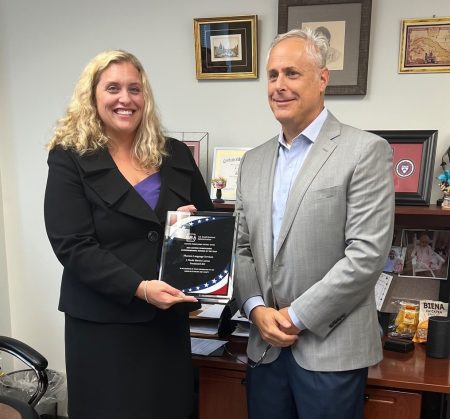When considering retirement, should I be focused on my money?
If you are regularly saving money, have cash in the bank, little or no debt, and are planning for your retirement, then this article might not be relevant to you.
However, if you are spending money freely, carrying high credit balances, and not thinking much about your future, it might be time to change your behavior. It's okay to refuse spending money and prioritize your own interests.
According to a November 2023 survey by Bankrate, 49% of credit card holders held debt from month to month, and in 2022, 23% of Americans had no emergency savings.
Unfortunately, we live in a world of consumerism. If you don't live in a beautiful home, drive a nice car, or dine at first-class restaurants, you might feel like a failure. However, there's not always a direct connection between wealth and the image we show to our friends and family. Just because someone seems successful doesn't mean they are financially stable or ready for retirement.
Are you:
—Always stressed about money
—Having difficulty paying your bills
—Relying on credit to get through the month
—Wondering why you have no money
—Giving money to adult children, family, or friends
—Shopping secretly and hiding your purchases
—Dining at expensive restaurants that you can't afford
If you don't understand how and where you spend your money, it might be time to assess your finances and start planning for your future.
Are you saving for your retirement?
People can live 10, 20, or even 30 years in retirement. If you have a pension, you might not be too worried because you'll have income. But most people don't have a pension and need to depend on their savings and social security for income.
Know how much you need to save before you retire so you can enter retirement without lowering your standard of living. If you don't know where to start, a Certified Financial Planner™ can help by making projections to estimate how much you need to have saved before retirement to match your current living standards.
Traditional wisdom suggests withdrawing 4% (adjusted annually for inflation) for about 30 years from a portfolio that is 60% invested in stocks and 40% in fixed income. This is a basic rule, and the amount withdrawn is often much lower than expected.
For someone with $1,000,000 saved, according to this rule, $40,000 in the first year is a safe withdrawal rate. The amount you should withdraw will depend on many factors, such as age, net worth, portfolio allocation, and the current economic circumstances. Depending on your situation, the annual withdrawal rate could be lower than 4%.
Are you budgeting?
A budget is a personal plan for managing your money. It allows you to identify and track your spending. Though simple, it's the basis for good money management.
Budgeting begins with monitoring a specific period, such as a month. It involves tracking your income and all your spending during this period. It covers fixed expenses and the small purchases we often overlook, like a quick meal.
At the end of a period, your budget shows clearly how much money you earned and how you spent it.
The most important thing when budgeting is to figure out if you have more expenses than income or if you have extra money, so you can decide what changes to make to improve your financial situation now and in the future, which will also help your retirement.
Are you in debt from using a credit card?
If you are using credit because you are spending more than you earn, this is a warning sign that could have a bad effect on your future. Think about what you can do now to make paying off your debt the most important thing for you. Find a payment plan that works for you, like the snowball or avalanche method.
This also means you will need to change how you act and spend money. Look at your lifestyle and find ways to spend less, like eating out less, not shopping online when bored, or finding cheaper things to do with family and friends.
Check your credit statements each month to see what the interest rate and balance is on the money you owe. If you think you might not be able to stop using your credit cards, take them out of your wallet and put them in a safe place. Also, remove the credit cards from any online sources you might use when you feel like spending money. This way, they won't be easily available if you're tempted.
When you ask for a credit card, a loan, or insurance, a file is made about you. This file is looked after by credit reporting companies, and the information in it is called your credit report.
Your history of making payments and the amount of credit you have are watched for your entire life. Your credit history is important; if your credit score is not above 720, it is hard to get a loan to buy a home. Credit card companies know that when a person has a lot of credit card debt, the risk of them not paying it back goes up. This will make them lower the person's credit score.
What are your goals for the near and far future?
Figuring out your short-term, medium-term, and long-term goals and what getting them will mean for your money is important for having a successful future, including retirement.
Short-term goals could be making a budget, paying off debt, and saving money for an emergency.
Medium-term goals might be to get a new car or save money for a down payment on a home, while long-term goals might be planning for when you retire. If you don't plan your goals, you might end up in a bad financial situation.
Planning helps you get ready for the future and stops you from feeling stressed and having to spend extra money because of unplanned financial decisions.
If you are not thinking about your retirement right now, it might be time to learn to say “no” to yourself, your children, and your family and friends when it comes to spending money that isn't good for you. You don't need to explain why, and you can just say it's not in your budget this month. Then take a deep breath and relax because you have taken the first step to being financially free.
Teri Parker CFP® works as a vice president at the Riverside office of CAPTRUST Financial Advisors and has been involved in financial planning and investment management since 2000. If you need to get in touch with her, you can contact her at [email protected].









